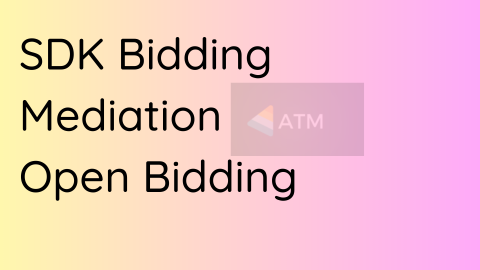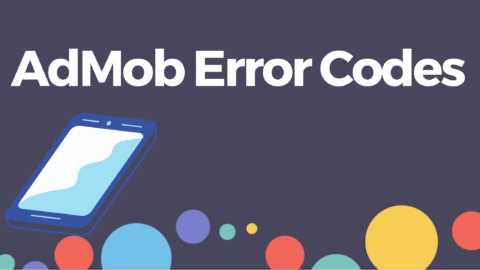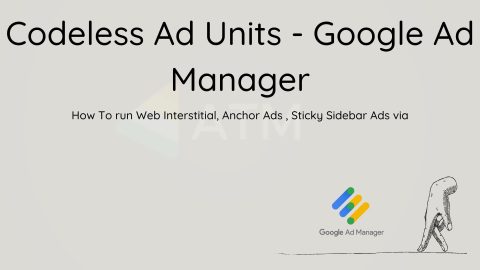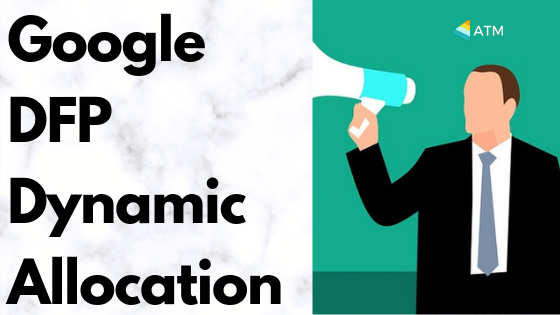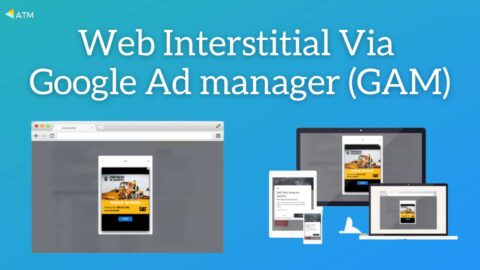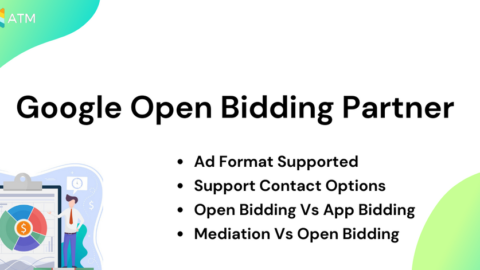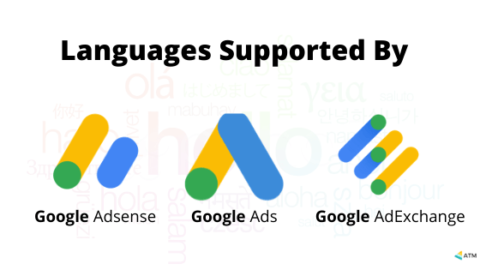Difference between SDK Bidding vs Mediation vs Open bidding for apps
In recent months, people have been talking a lot about “SDK Bidding” and “header bidding for apps.” In the world of ads and technology, this has led to many new acronyms and words that can be confusing. Different companies are trying to convince publishers that their way is the best way.
But what’s really changing with these products, and how does it affect the money publishers make from ads? How its different than existing Mediation or Open bidding for apps ?
How Mobile Apps Ads Work
For a long time, not much has changed in how ads make money for publishers. Most ads in mobile apps are managed by something called “SDK-based ad networks.” These networks don’t give a real-time price for each ad spot. This is different from the programmatic market, which can give real-time prices for ads.
But even though programmatic ads are cool, the ads that make the most money are still the ones managed by these SDK-based networks. They have special ad formats and good relationships with advertisers, so they bring in the most cash for publishers.
To make things a bit more like programmatic ads, some of these SDK-based networks have started letting publishers set minimum prices for their ads. But this has some problems:
It’s a lot of work to manage different prices for ads in different countries, formats, and networks.
It still needs something called an “ad waterfall” because it’s like a yes or no game with ads at a certain price.
Because of these problems, some publishers don’t set minimum prices and let a mediator’s “auto eCPM” decide which ad to show.
But there’s a downside to this too. It means that an ad that’s supposed to pay $20 might actually pay more or less. The mediator can’t pick the best-paying ads from different SDK-based networks..
New Era for Mobile App Ads
Lately, there’s been a lot of talk about new ways to make money with ads on mobile. They have names like ‘Advanced Bidding’, ‘Fair Bids’, ‘Unified Auction’, and ‘Parallel Bidding’ or ‘SDK bidding’. But they all aim for the same thing: getting all types of ads to bid in real-time.
Here’s the big change: Some of these SDK-based ad networks now work with mediators to give real-time prices. This way, better ads can join the auction.
But there’s a difference between these new ads and the old way of bidding. In the old way, programmatic ads had a fixed price, but SDK-based networks usually had performance-based prices like cost per install (CPI) or cost per action (CPA).
So, if SDK-based networks want to give a fixed minimum price, they need to guess how much an ad will pay in CPI or CPA and convert it into a fixed price.
Some networks give a soft, estimated price that might be higher or lower than what they really pay. It’s up to the mediator to make sure these estimated prices are fair. This is what mediation is normal we consider.
Why Soft and Hard Bids Matter
Some say a hard, fixed price is better than a soft, estimated price, but there are pros and cons.
In case of ad networks. Some want to share the profit with publishers (soft bid), while others want to pay less upfront (hard bid). This can affect how much publishers earn.
But competition should keep prices fair, right? Well, SDK-based networks usually have fewer competitors than other networks, which can lead to lower prices if they’re not careful.
The Future of Waterfall - Partner Bidding
Publishers want more real-time competition among ad sources, and they’re moving toward a system where all ad sources bid at once. This could mean the end of the old ad waterfall.
You may have heard about Google Ads moving to real-time bidding for apps. What this means is that Google will no longer accept multiple ad requests with different minimum prices from the same source of ad space, which is essentially the traditional waterfall system.
Instead, Google has introduced a solution called “Partner Bidding.” With Partner Bidding, Google can be integrated into other third-party mediation platforms, and it will participate in real-time bidding auctions rather than following the old waterfall approach.
You can learn more about this change on Google’s official blog and find additional details in Google’s Partner Bidding here.
It will take time for everyone to switch to the new system, whether existing publisher which are using GMA sdk to add other third party sdk into their system. Or whether existing app bidding solution provider such as applovin or ironsource to adjust their bidding with google.
Some publishers worry that too much real-time competition could lead to lower prices.
In the end, as more ad sources provide real-time bidding data, publishers will be able to make smarter choices about which ads to show. This is a big opportunity for publishers and developers to make more money and improve the ad experience for users..
Differences between SDK bidding, mediation, and open bidding for apps
SDK Bidding:
What It Is: SDK bidding is a method where individual ad networks or demand sources provide a real-time bid for an available ad impression within a mobile app.
How It Works: When a user interacts with the app, the SDK of each ad network communicates directly with the app to bid on the ad space. The highest bidder wins the opportunity to display their ad.
Pros:
High Competition: Allows for competition among different ad networks in real time, potentially leading to higher ad revenues.
Precise Control: Offers control to publishers over which ads are displayed and at what prices.
Cons:
Complex Integration: Implementing multiple SDKs can be complex and increase app size.
Management Overhead: Publishers must manage and maintain multiple SDK integrations.
Mediation:
What It Is: Mediation is a technique used to manage multiple ad networks and optimize ad fill rates and revenue for a mobile app. It acts as an intermediary between the app and various ad networks.
How It Works: Mediation platforms prioritize and select the best-performing ad network for each impression, often based on historical performance and eCPM (effective cost per mille). They may also manage ad network waterfall setups.
Pros:
Efficiency: Simplifies the ad network management process, reducing the need for multiple SDK integrations.
Maximizes Revenue: Optimizes ad placements for the highest possible revenue by selecting the best-performing network for each impression.
Cons:
Limited Real-Time Bidding: Typically, mediation does not involve real-time bidding, which may result in missed opportunities for higher-paying ads.
Waterfall Setup: Involves setting up ad network waterfalls, which can be time-consuming and less dynamic.
Open Bidding:
What It Is: Open bidding, also known as unified auction or parallel bidding, is an approach where multiple demand sources, including both SDK-based and programmatic networks, compete in real-time for an ad impression within a mobile app.
How It Works: When a user triggers an ad opportunity, all enabled demand sources submit real-time bids simultaneously. The highest bid wins and serves the ad.
Pros:
True Real-Time Competition: Provides genuine real-time competition among all demand sources, potentially leading to the highest possible ad revenue.
Simplicity: Reduces the need for waterfall setups and multiple mediation layers, making ad management more straightforward.
Cons:
Transition Challenges: Transitioning from traditional mediation to open bidding can be slow, and not all ad networks may support it initially.
Price Competition: There’s a concern that intense real-time competition could lead to a price war, potentially lowering ad revenues.
In summary, SDK bidding focuses on real-time bids from individual ad networks, mediation optimizes ad network selection based on historical performance, and open bidding allows all demand sources to compete in real-time for ad impressions. Each approach has its advantages and challenges, and the choice between them depends on the publisher’s goals, technical capabilities, and the app’s specific needs.

